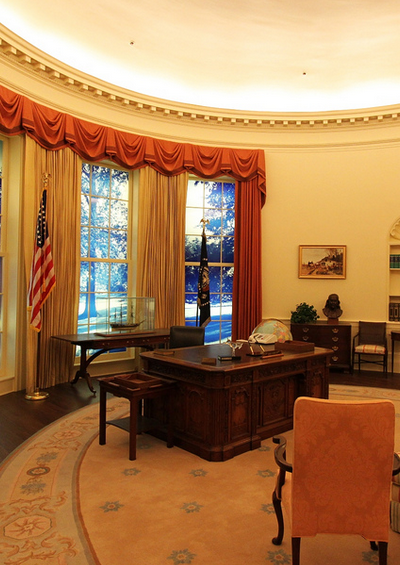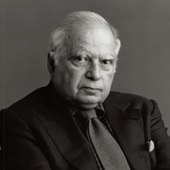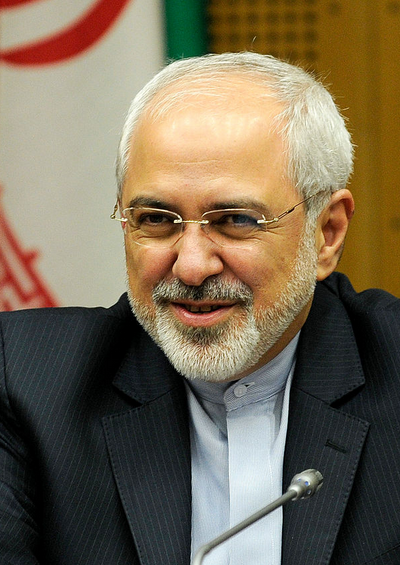The Unmaking of American Foreign Policy
The American presidency has a long history of appropriating foreign policy powers from Congress.
April 11, 2015

On February 11, 2015, President Obama asked the U.S. Congress for authority to make war on Islamic jihadists.
The more bellicose members of Congress, mainly Republicans, think him insufficiently aggressive and want to give him powers of limitless intervention. The more cautious members, mainly Democrats, do not wish to issue a blank check to this President or his successor in 2017.
The American citizenry is frightened of terrorist attacks within the United States. Tired of war in the Mideast, it is resigned to sending more forces there. In fact, Mr. Obama has not waited for Congress and ordered U.S. forces into action against ISIS in Iraq and Syria, as well as against jihadists in Yemen.
Meanwhile, the new Secretary of Defense, Ashton Carter, has said that he considers himself as responsible to the U.S. military as to the President. Congress is left out of the equation. That view, of course, rewrites the U.S. Constitution, which gives the President authority to make war and peace, subject to the approval of the Congress.
The new constitutional order
His statement is not a real surprise, however. Since the beginning of the Cold War in 1945, the Constitution has been effectively rewritten. Presidents have arrogated large powers of solitary decision to themselves. Simultaneously, they have had to bargain with governmental bureaucracies accountable to no one.
The latter include the armed forces, the State Department, the swollen and secretive intelligence agencies and the departments in charge of economic affairs. The foreign policy apparatus is very efficient in controlling policy, if very inefficient in devising successful projects over longer periods. In addition, time and again, and despite all its presumed depth and collected wisdom, it is always surprised by the next disaster.
The U.S. foreign policy apparatus has its own connections to the Congress, which controls its funding and de facto rules on its careers. In addition, the Congress is besieged by foreign and military policy lobbies of all sorts, from arms manufacturers to business, ethnic and ideological groups.
Often, the lobbies rely on individual Representatives and Senators as allies or servants. U.S. media, for their part, are unable to maintain critical distance from the fabricated wisdom of official Washington. Most journalists also do not risk disturbing the intellectual sleep of their editors — or that of their readers or viewers.
Fonts of orthodoxy
That basically leaves U.S. universities and centers of research to provide new ideas and serious knowledge. However, many academics are at pains to say nothing that would impede future governmental appointments. The proliferation of centers of research in Washington can be understood ecclesiastically. They are fonts of orthodoxy, designed to resist heresies that rise beyond the gates of the capital and the control of its intellectual high priests.
Inheriting institutions and policies they cannot change and aware that they are transients in a city that may rapidly forget them, U.S. Presidents from Woodrow Wilson onward have chosen to install their own foreign policy staffs in the White House, but they usually draw upon these reservoirs of establishment thinking. Their advisors are acutely aware of the brevity of Presidential power.
Addressing the nation
Presidents do occasionally venture forth to raise their own voices in the midst of the prevailing cacophony. To speak for the nation, first they have to speak to it. This task hasn’t been made easier by the fact that the public’s knowledge of the rest of the world, never very large, has receded.
At the same time, we currently have an unusually well-educated and reflective President. Yet his conviction that military solutions do not solve all problems is denounced by his antagonists as weakness.
As the world has indeed become more complex, what there was of consensus in U.S. foreign policy has disintegrated – and with it any united front that once stood behind the executive.
Our European allies wish to join the United States in a long-term strategic project. That is precisely what our present political situation makes impossible. Worst of all, there are no grounds for supposing that matters will improve between now and the Presidential election of 2016 – or thereafter.
Editor’s Note: This feature was adapted from an earlier version that appeared in Germany’s Handelsblatt on March 22, 2015.
Takeaways
The more bellicose members of Congress find Obama’s foreign policy insufficiently aggressive.
Mr. Obama has not waited for Congress and ordered US forces into action against ISIS in Iraq, Syria and Yemen.
US foreign policy is efficient in controlling policy but inefficient in devising successful long-term projects.
As the world has become more complex, what there was of consensus in US foreign policy has disintegrated.
The US political situation makes impossible European allies' joining the US in a long-term strategic project.

